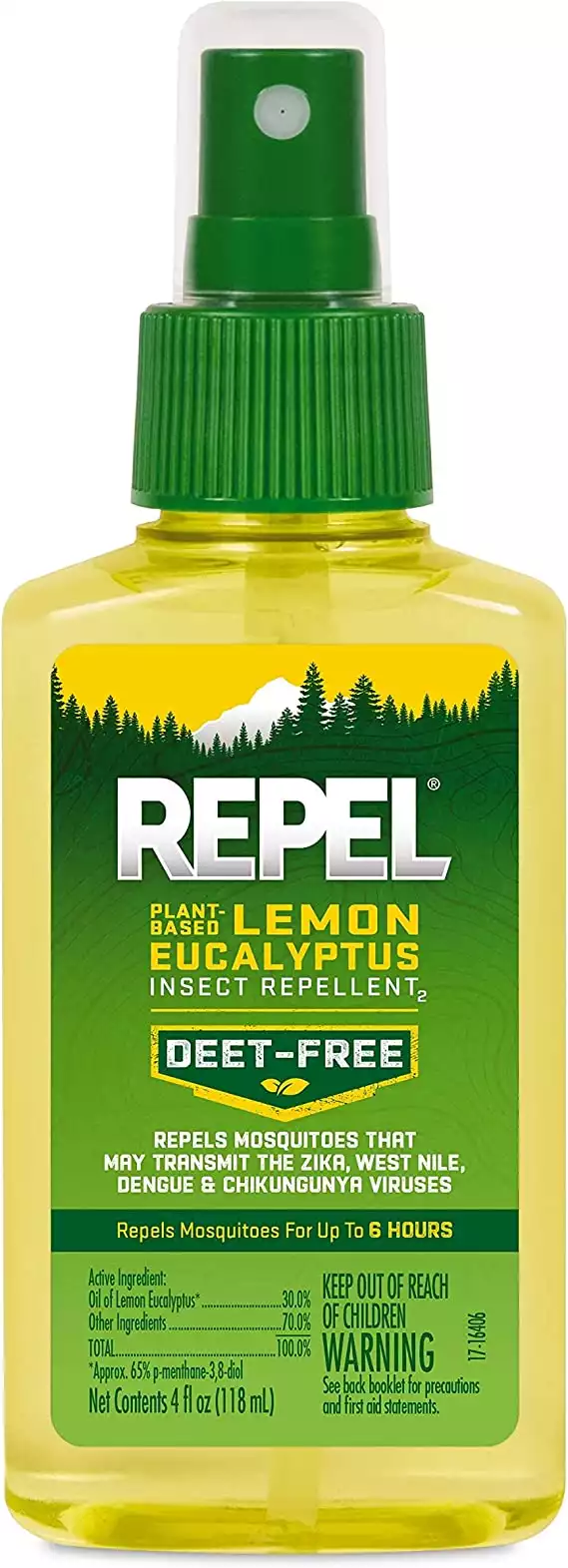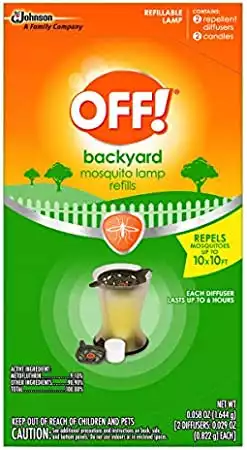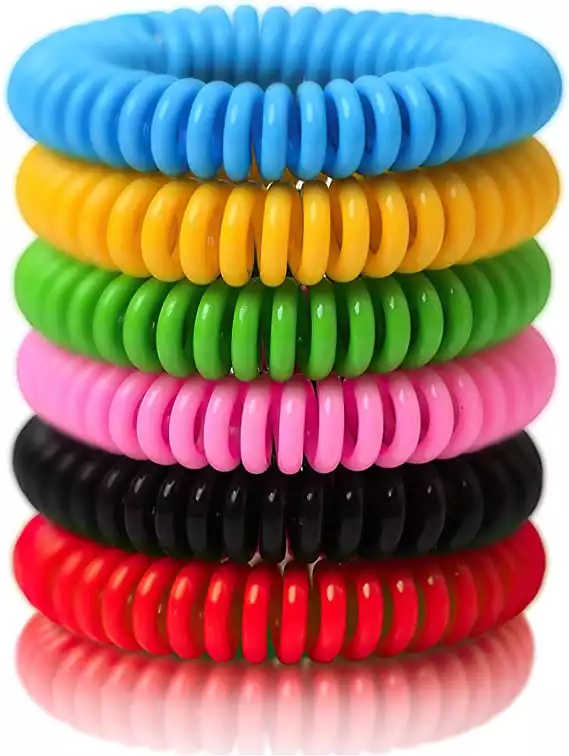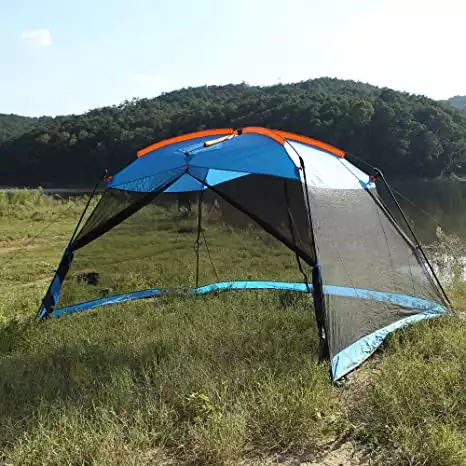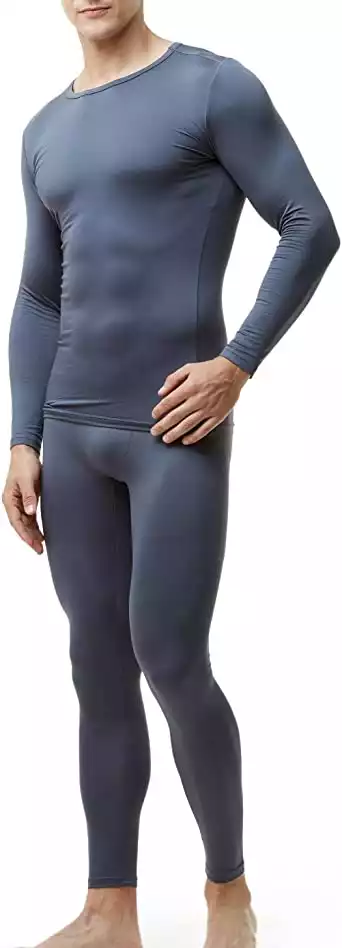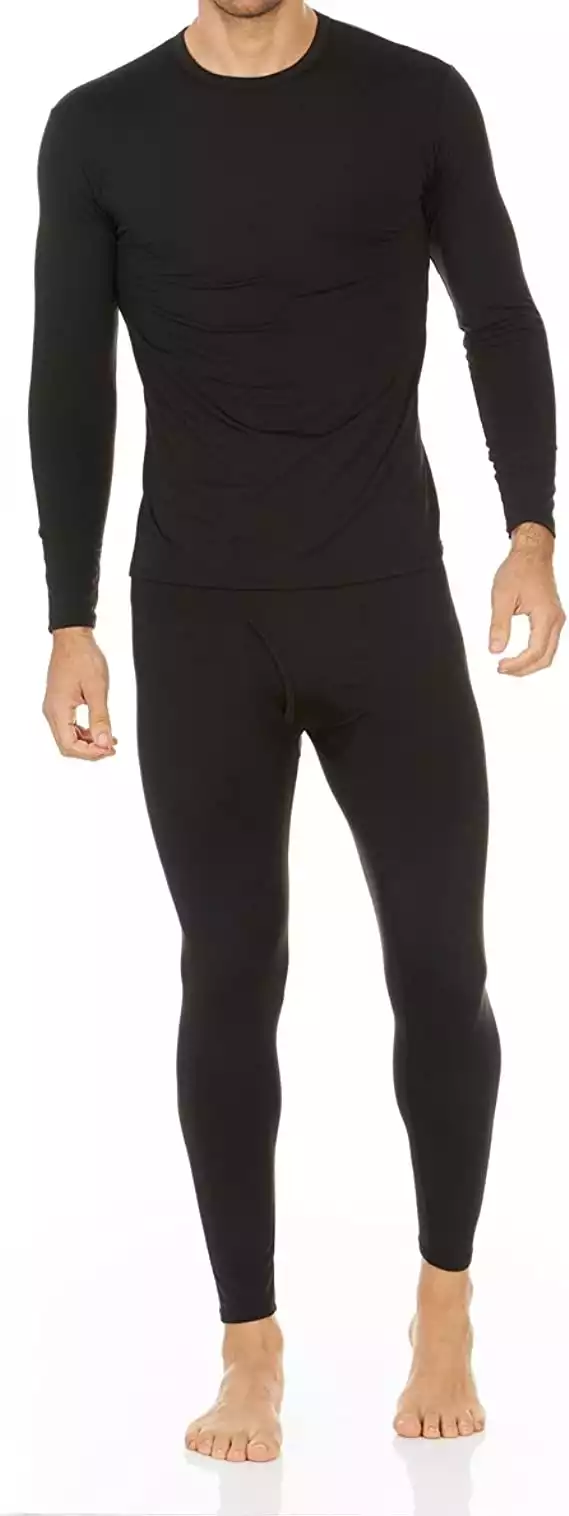Spending time in the great outdoors can be a family favorite. That is until the mosquitos flock to your campsite and you feel that you have no choice but to sit inside the tent or your car.
Don’t let some pesky insects get in the way of a good experience in the outdoors. Just like you prepare for everything else, learn how to repel mosquitoes, and safeguard yourself against these potentially harmful insects.
What’s the Best Way to Keep Mosquitoes Away While Camping?
Mosquitoes have been found to be one of the world’s deadliest animals. These tiny insects often cause itchy bumps to break out across your skin because of their anticoagulant saliva to feed easier. Only female mosquitoes feed on humans, and only a couple hundred species out of the 3,500 mosquito species on the globe.
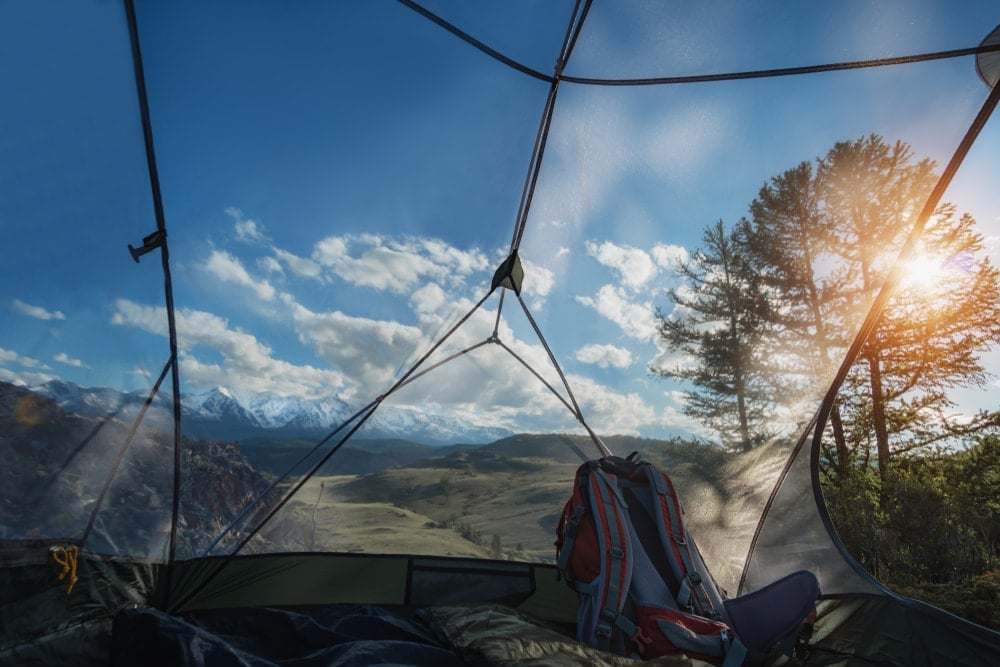
The danger from mosquitoes has been reduced because of malaria treatments and other developed medications. However, there are still approximately one million people who die from mosquito bites each year.
To help protect you and your family while you enjoy the great outdoors, we have compiled some of the most effective ways and products to keep these annoying insects away from you. If you are especially attractive to mosquitoes, don’t be afraid to use multiple options as a more effective combination to get rid of them.
15 of the Best Ways to Repel Mosquitos While Camping
1. Locate a Dry Campsite
Starting from the beginning, once you unload from your car or set down your pack for the evening, you need to choose a proper campsite.
When choosing one that mosquitoes won’t flock to, try to find one that is away from any stagnant water. These pools and puddles that don’t have any water flowing in and out of them are prime locations for female mosquitoes to lay their eggs.
Finding a space by a river that flows quickly or a lake that has current flowing in and out shouldn’t be an issue. If current rainfall or snowmelt has created damp swamps or puddles, find another area to camp in to avoid mosquitoes.
If you have already rented a space in a campground, then you won’t get too much choice. You will probably have a marked out pad where the proprietors want you to stake your tent, and you have to hope that they have laid out the grounds well.
2. Keep the Site Clean and Closed
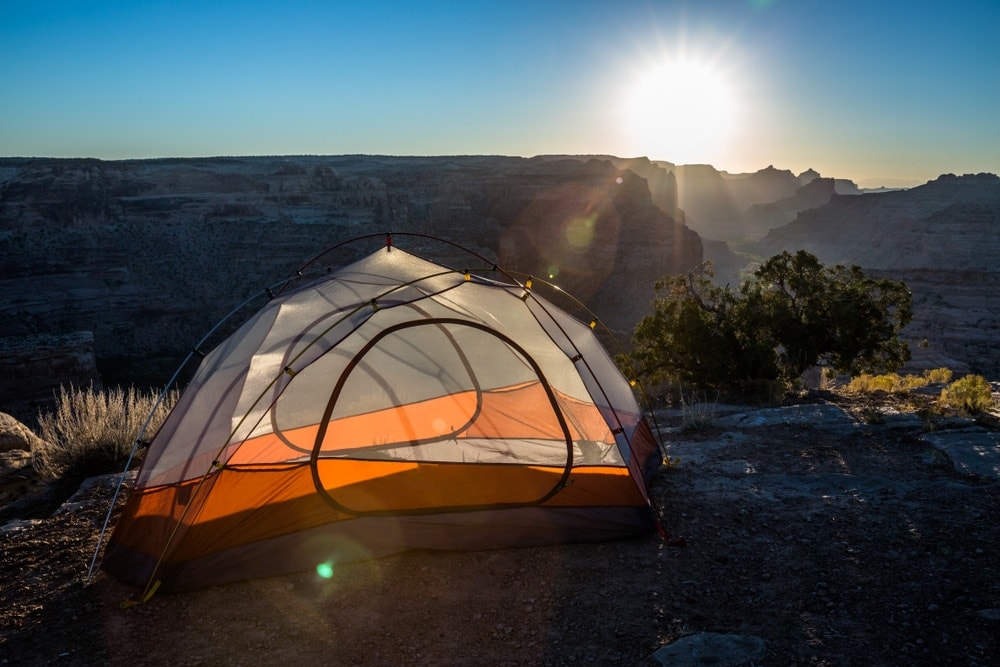
Now that you have your campsite set up and ready to go, there are a set of best practices to follow on-site.
Once you set your tent up, keep all of the zippers fully closed on the doors and windows. When you enter and exit the tent, quickly zip the zippers back so that nothing can easily come in before and after you. Doing all of this might seem quite inconvenient if you want to move things into the tent. However, at night, when you are lying there trying to fall asleep, it will be worth it if there aren’t bugs buzzing around your face.
Keeping your tent and car doors closed isn’t the only aspect of keeping mosquitoes out. Maintain a tidy campsite to stop them from smelling leftover food or trash. Even though they don’t feed on the garbage itself, they are naturally attracted to it.
Store any food waste in sealable bags until you can put them in a trash can or dumpster.
3. Use Bug Spray
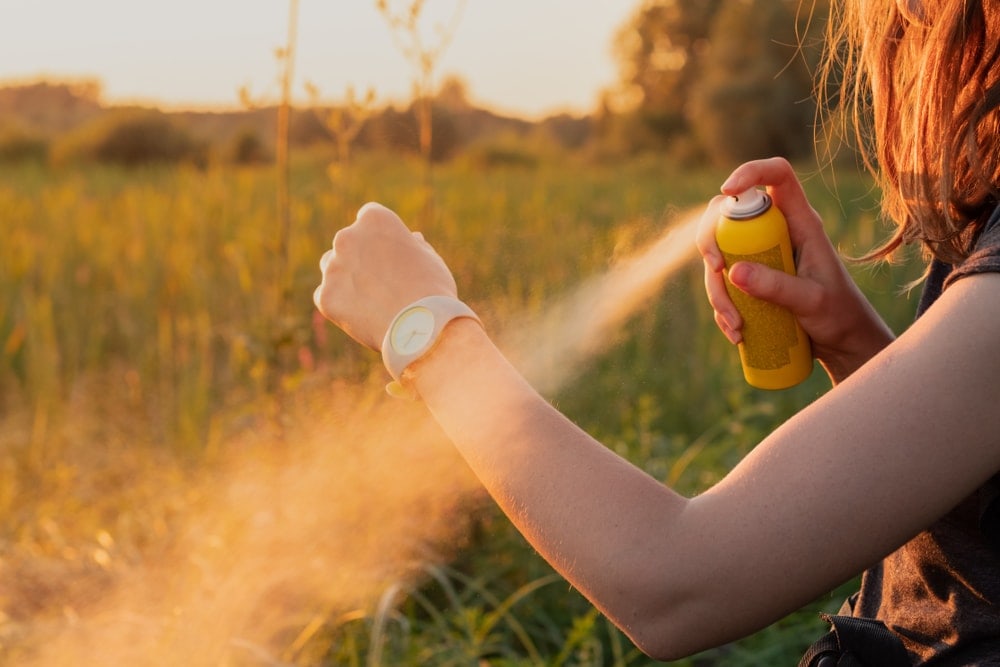
One of the most obvious solutions to your bug problem is to repel them away from the area and your skin by using bug spray. You can use bug spray on your tent, around the site if they begin to worsen, and by spraying it on your skin and clothes.
It is always best to test your bug spray by spraying it on a small patch of skin first. It isn’t beneficial if the bug spray causes a worse allergic reaction than the mosquitoes would. You should find bug spray that isn’t scented. Some of them are even augmented with other beneficial ingredients like this bug spray.
- DEET-based repellent
- 8 oz (118 ml)
- Offers 2-hour protection
4. Go Natural with Essential Oils

Spraying yourself with chemicals isn’t the only easy way to discourage these pests. Instead, use a natural mosquito repellent to keep your skin and body safer both inside and out.
You can use a natural repellent spray, meaning it is still a bug spray but one derived from natural materials.
You can often create a spray like this yourself since they are made using a combination of essential oils. Some scents attract mosquitoes, and others that repel them quickly. Essential oils are made from concentrated herbal and plant-based extracts. You need to dilute them to make it, so they aren’t so concentrated that they will irritate your skin.
Find a spray bottle and mix in a tablespoon of rubbing alcohol and a cup of water. If you can find it, add in half a cup of natural witch hazel as well. Then, put in 10 to 20 drops of one of the essential oils listed below:
- Tea tree
- Eucalyptus
- Thyme
- Cedarwood
- Sage
- Catnip
- Citronella
- Clove
- Mint
- Basil
- Rosemary
- Geranium
- Lemongrass
Before using your natural spray, shake it well. Oil and water don’t like to stay mixed and will quickly separate, making it markedly less effective.
- Plant-based Lemon Eucalyptus
- Repels up to 6 hours
- Not sticky or greasy
5. Light Candles

You might never have thought that the sweet-smelling candle that makes your home smell like a cozy getaway or a walk in the park would help deter mosquitoes, and you would be right. However, citronella candles sure do.
Citronella is derived from plants, much like our typical herbs. The oil is extracted from the plant and put into these candles. When the candle burns and the wax melts, the smoke’s combined effect with the candle’s pungent smell keeps these bugs well away.
There aren’t only larger candles now that have a citronella scent. You can also get smaller citronella tea lights that you can rest in mason jars around the campsite. Not only does it keep these pesky bugs away, but it also makes the entire site feel more magical.
6. Run Bug-Repelling Diffusers or a Coil
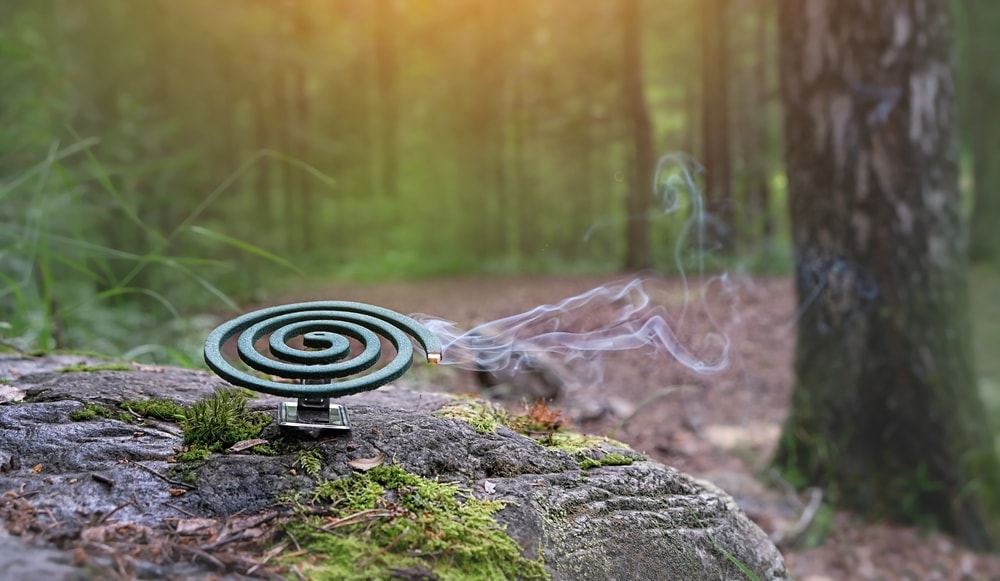
Diffusers and coils are other products that can contain chemical compounds and essential oils to act as an insect repellent around your campsite. They often emit pesticides via a small battery-operated fan to spread the chemicals more effectively around a small campsite.
These mosquito repellent devices can work for up to 12 hours and are often said to provide anywhere from 80 to 100 percent protection against mosquitos and other irritating bugs. The coils are often infused with pyrethrum, and the mosquito repellent diffusers are filled with metofluthrin, another pesticide.
- Diffuser lasts up to 6 hours
- Relightable and refillable lamp
- Keep mosquito away up to 10 x10 ft (304 x 304 cm)
You can scatter a few of the coils and diffusers throughout your campsite since it is unlikely you will smell them. The bugs will, though, and they will help create a bug shield around you.
7. Wear Bug Repellent Bracelets
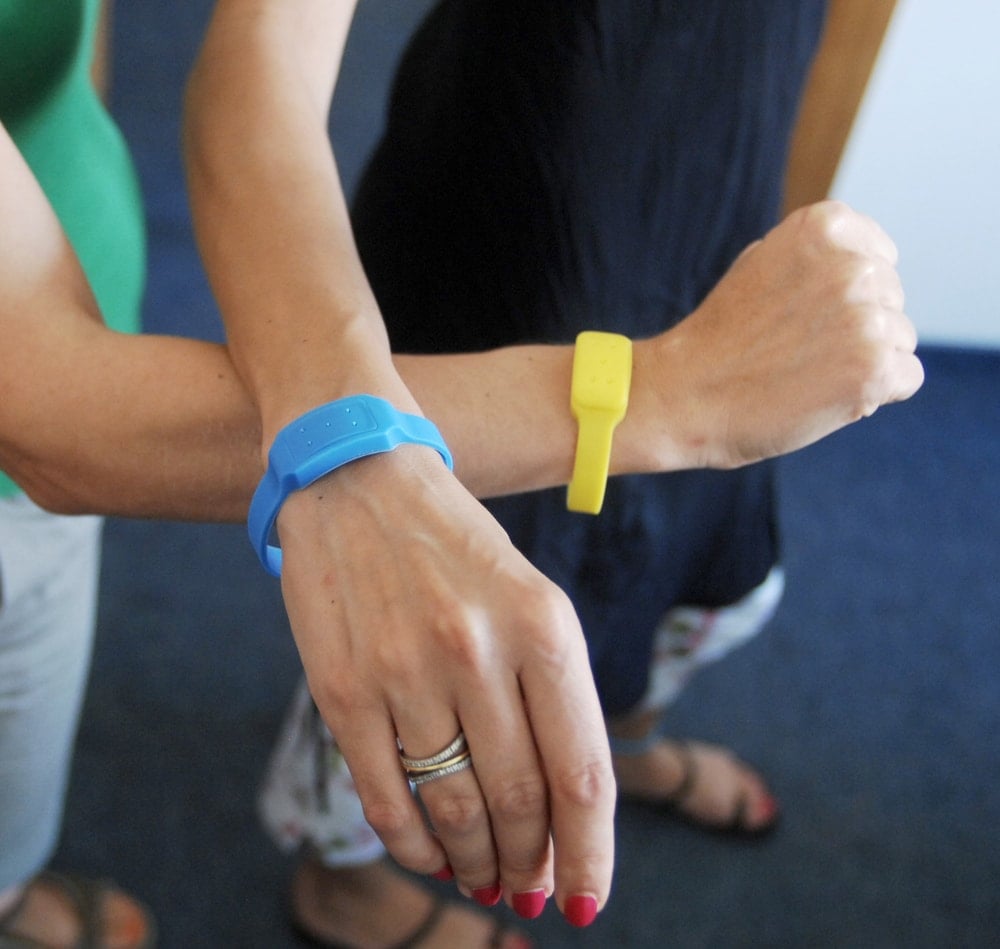
Many people nowadays do not like the idea of spraying chemicals on themselves and their clothing or having them diffuse into the air they breathe. This is quite understandable since there are not always studies on the long-term effects of all these chemicals on us.
If you fall into this category and feel safer without using chemicals, then wearing a bug repellent bracelet might be the preferred option. These do emit chemicals but in a different way.
- Natural and waterproof wrist bands
- 100% Natural and Deet-free
- Perfect for indoors and outdoors activities
Many people often use mosquito repellent bracelets for their children since they aren’t necessarily supposed to be sprayed down with a can full of DEET. It also keeps them for longer no matter what messes they find themselves in while adventuring.
8. Spray Vinegar
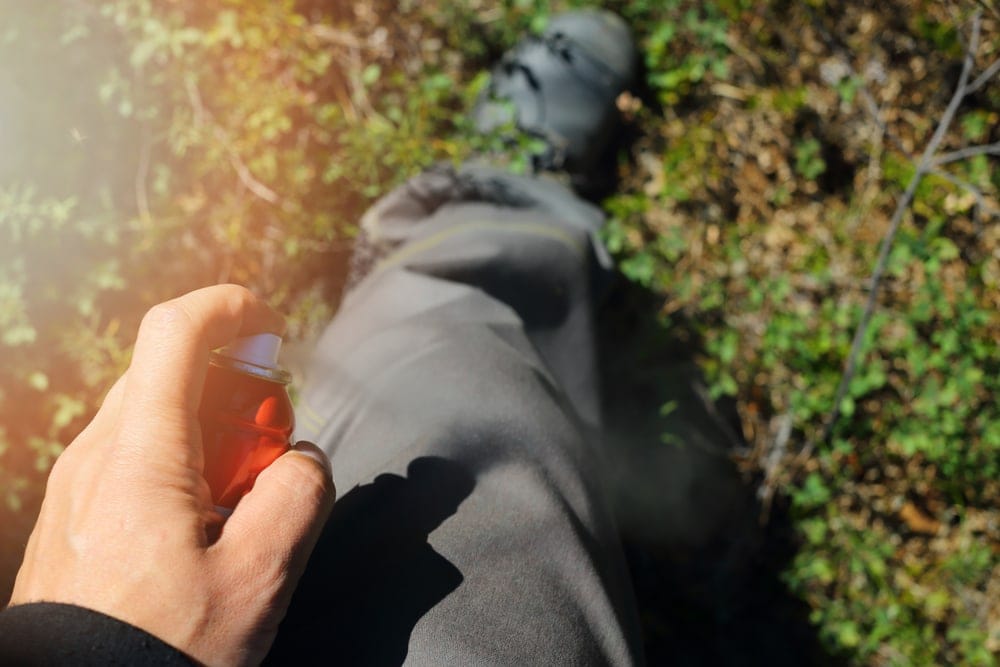
Spraying vinegar is a great way to get those pesky mosquitoes off your back. As you can tell, more than sight or sound, deterring mosquitoes through smell is the best way to do so. They sense smell differently than we do, instead of taking it in through their antenna instead of through a nose. Negative or strong smells still impact them similarly to us.
Spraying vinegar around the campsite perimeter is an excellent way to start your ring of protection. The most challenging part of using vinegar is that most of us do not prefer it either. Both white vinegar and apple vinegar work as a deterrent for mosquitos.
If you don’t enjoy the smell of vinegar but would still like to use an effective natural repellant, mix the vinegar with some essential oils or some dried herbs to reduce the smell.
9. Take Garlic Capsules
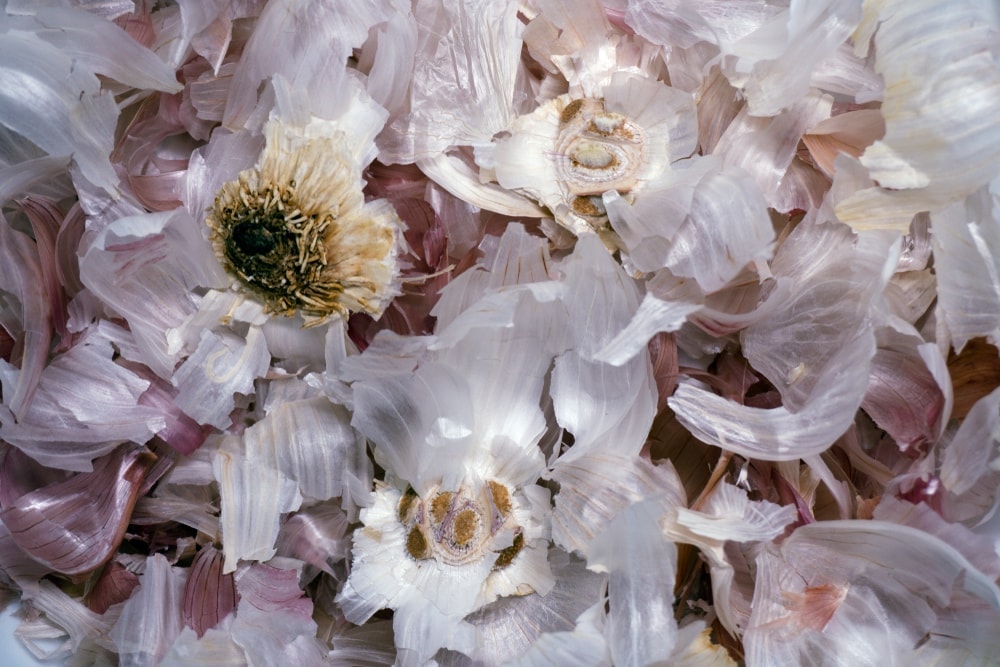
Many people associate vampires with the hatred of garlic, but mosquitoes don’t like it either. Hanging cloves of garlic or eating it in chunks might not be preferable for us either. However, you can take garlic capsules. Even if you can’t smell it and it’s not on your breath doesn’t mean the mosquitoes and other insects can’t smell it on your skin.
Other strong-smelling foods you can eat if you want to keep these pesky critters away include onions and citrus fruits. You can even try rubbing your skin with citrus peels before you leave the safety of your campsite.
10. Put Up Screens
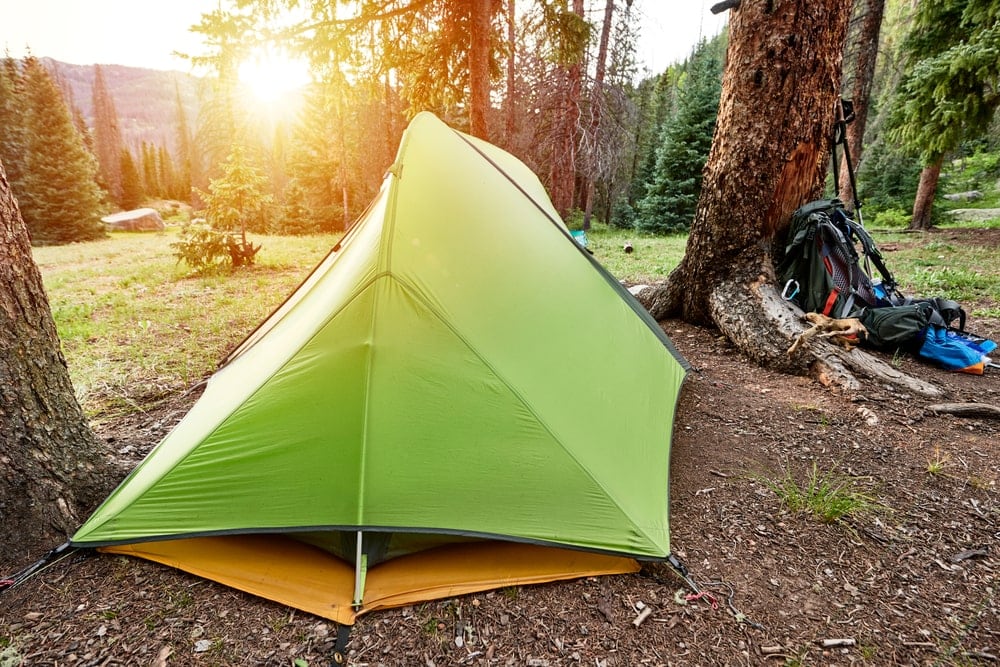
Physical barricades are another effective way to keep the mosquitos away from you. You can set up an extra sheet around your tent, or you can even create a sort of patio when you want to eat, read, or sit and relax outside.
There are things now like screen houses to offer outdoor protection from the bugs. They are big enough to assemble over a picnic table or around a set of patio chairs. You can’t put these tents over a fire, but the fire should be effective enough itself.
- Easy installation
- Can be used as canopy shelter and in the camping kitchen
- 6-8 people capacity
11. Cover Yourself
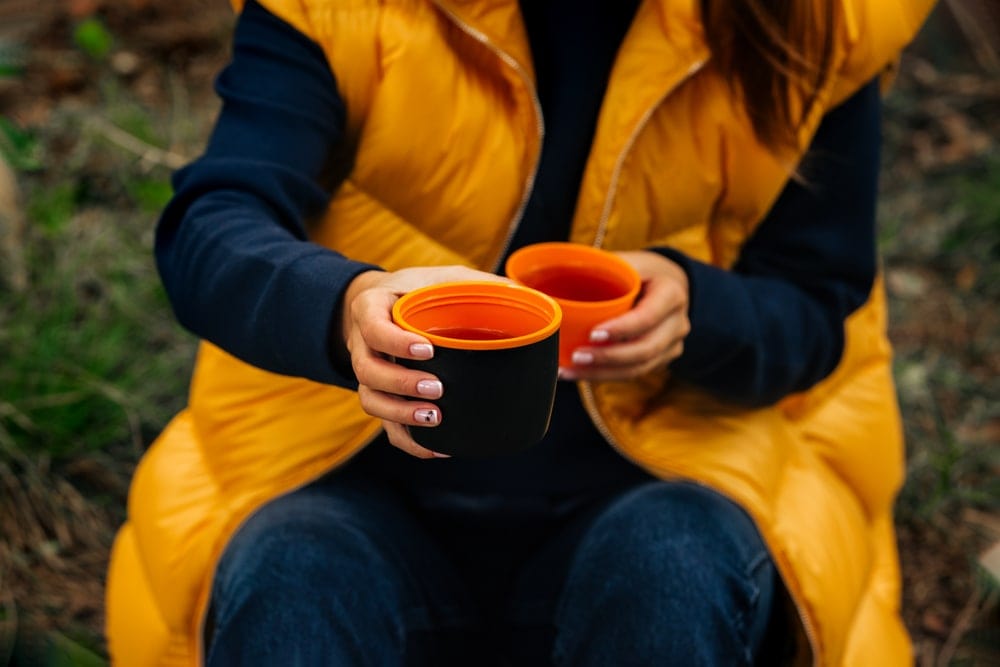
If you intend to go for a hike or walk while you are on your camping trip, then you are leaving from the protection you have created around your campsite. To ensure that you stay safe, protect yourself by wearing an extra layer.
It might seem extraordinarily inconvenient if you are hiking in the summer, but wearing even a thin layer of clothing over your arms and legs can be enough. If you know that you are going into an area known for the mosquito populations, such as marshy, low-lying areas, dress with extra layers.
In cooler weather, you can wear thermals. These are thin layers of clothing meant to go under vests or sweaters. They keep your body warmer and double as effective mosquito deterrents when they try to get to your skin underneath.
- Designed for heat insulation, mobility, and 2-way moisture wicking
- Casual look with a sporty design
- Made of micro fleece fabrics
12. Don’t Use Scents
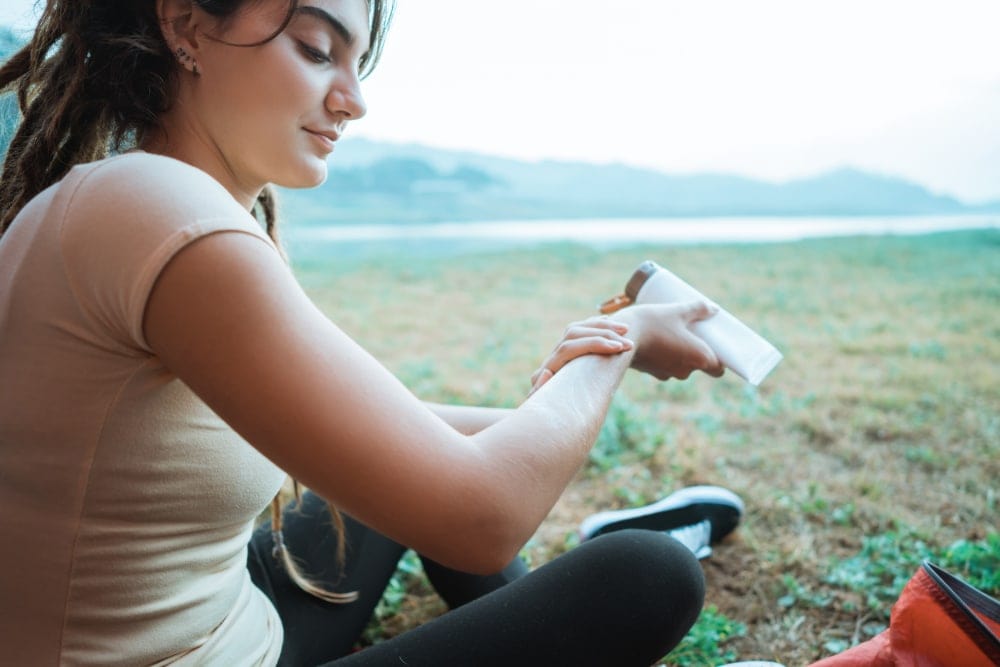
Many of these tips and tricks have been all about scents. You want to throw off a mosquito’s ability to smell you. Without that, they are unlikely to be attracted to you and try to take a bite. Using scents that they don’t prefer is a great way to mask yours.
However, you can also negate all of this hard work only by trying to smell good. Avoid wearing strong-smelling lotions and perfumes out into the wilderness.
Many of the scents in these perfumes are going to smell just as pleasing to the mosquitoes as it does to those around you. Try wearing more of a neutral-scented deodorant on your camping trip.
- Stretchable material
- Lightweight thermal set ideal
- Moisture wicking
13. Bring Along Herbs

Plants have long been used as a natural deterrent to mosquitoes and other pests. Some people put them around their garden to keep bugs from chewing up their produce, while other plants can be used to create a more powerful ring of protection around your campsite.
Some of these scents are common for people to wear, but having them in their natural plant form makes their natural oils much more powerful. Some of these herbs include:
- Mint
- Eucalyptus
- Lavender
- Citronella
- Rosemary
- Sage
You can use them to rub on your skin before leaving the campsite or while working in it outside of your tent. You can also dry these herbs or purchase their dried versions and burn them in the campfire or a candle to spread the scent into the air with the smoke.
14. Turn Off the Lights
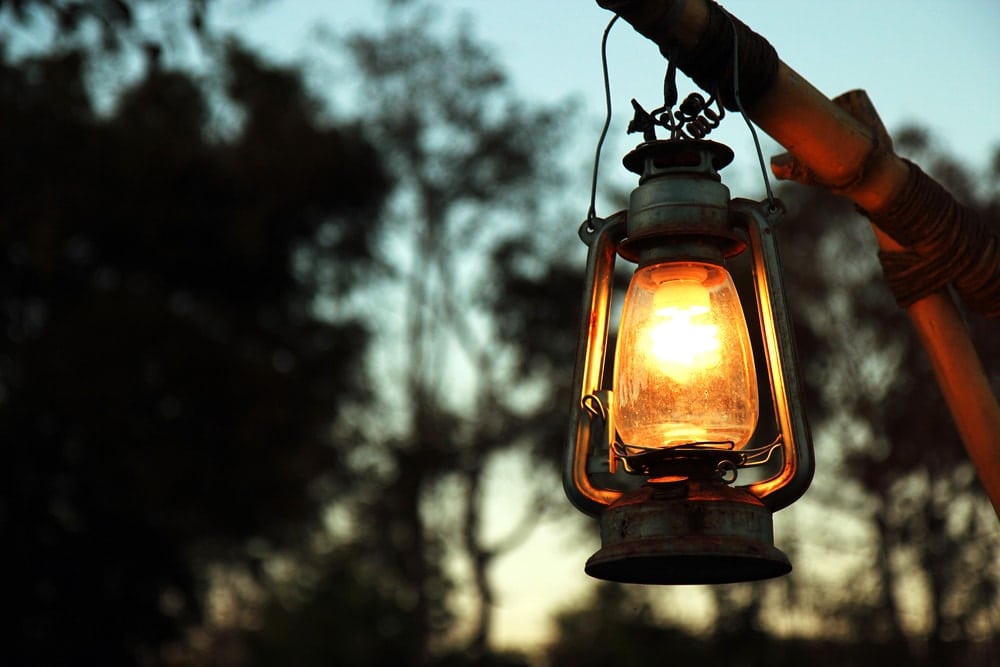
Although mosquitoes predominantly rely on their ability to smell you, they are still drawn to lights. They aren’t going to flock to the light as moths and flies will. However, it does instinctively signal to them that humans will be around. If they can get to the light, then they can find you.
To avoid this on your camping trip, use electric lights as little as possible. Only use a lantern when you need to finish getting sorted or want to move from place to place safely. Try to avoid headlamps for more than a couple of minutes.
15. Light a Fire
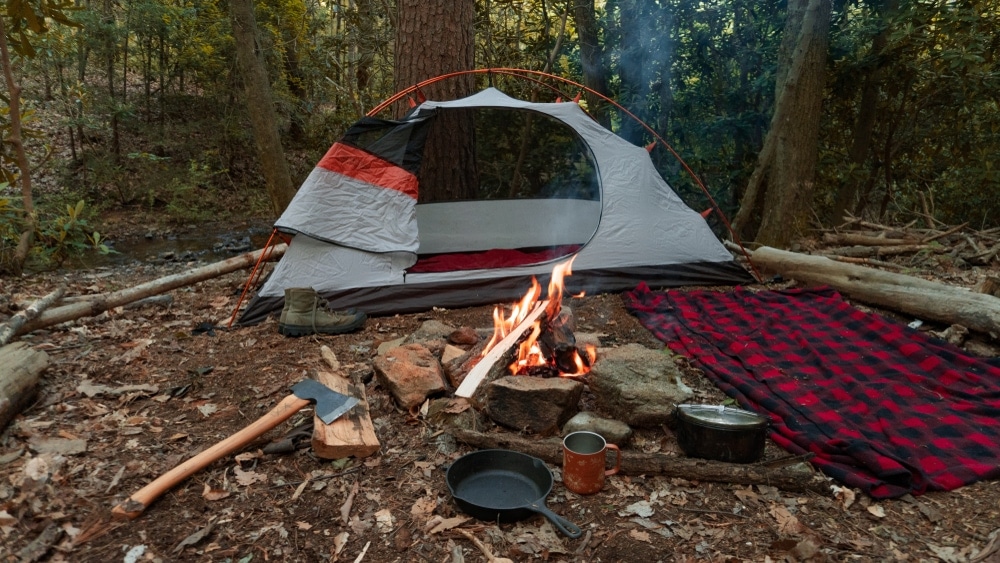
So then how do you see around the campsite at night if you can’t use a light? When it comes to combating mosquitoes, you have to do it the old, old-fashioned way, with fire. Mosquitoes hate smoke, which is another reason that candles are helpful. However, a large campfire will produce more than anything else.
Lighting a campfire will often keep those sitting around the outside of it relatively safe. It doesn’t allow mosquitoes to breathe well and almost entirely masks any other scent. Use the light of the campfire as it gets dark to move around the campsite safely. Just make sure to extinguish it thoroughly before you go to bed at night.
The last of its smoky plumes will be enough to keep you safe throughout most of the night, and your tent’s tight mesh should do the rest.
FAQ Section
1. What color light keeps mosquitoes away?
Yellow or yellow-tinted lights have been shown to keep mosquitoes away more effectively.
Most insects, including mosquitos, see only three colors of light. The first is ultraviolet light or UV. The others are blue and green. If you have outdoor lights that are very bright white or blueish, they will be extremely attractive to insects. These kinds of lights include white incandescent lights, white fluorescent bulbs, or mercury vapor.
Since mosquitos cannot see yellow light very well, it is best to use yellowish, orange, or pink-tinted lights. These are the least attractive. They can include sodium vapor lights, dichroic yellow, and halogen lights.
2. Do mosquito bracelets works?
Mosquito bracelets work best when used in tandem with some other products or methods to eliminate mosquitoes. They are often infused with chemical or botanical products to provide protection. Still, they do not effectively provide whole-body protection since they only focus on one part of the body. The vapors they emit are also not very strong.
3. Are bug-zappers effective against mosquitoes and flies
As you try to figure out how to repel pesky insects, you might be surprised to find that bug zappers are unfortunately quite ineffective against mosquitoes and many biting flies. Studies have recently been finding that they do more harm than good since they attract the beneficial insects that feed birds and work hard to pollinate the necessary plants.
Mosquitoes primarily find their prey by smelling carbon dioxide that we breathe out with their antennae. They can also smell various skin odors. They are not very attracted to bright lights, no matter the color, since they already know that it won’t be likely to lead them to any food source.
Some flies are attracted to bug zapper lights. Although the species that get caught in its electrical trap are often not those that bite, they are the ones that irritatingly buzz around your food. Just remember that if you put a bug zapper out to catch these flies, you are also likely to be damaging the ecosystem.
4. Are ultrasonic devices effective?
One of the newest trends in the pest control industry was making an ultrasonic device that could act as a mosquito repellent device. They were supported for a while as an effective means of deterring rodents. Supposedly, the ultrasonic noises would sound like jackhammers in the ears of a mouse.
While these can be somewhat effective for small animals, there has been very little scientific evidence demonstrating the effectiveness of an ultrasonic pest control device for insects. Since most insects don’t have typical ears, deterring them with noises, even ultrasonic ones, isn’t effective.




